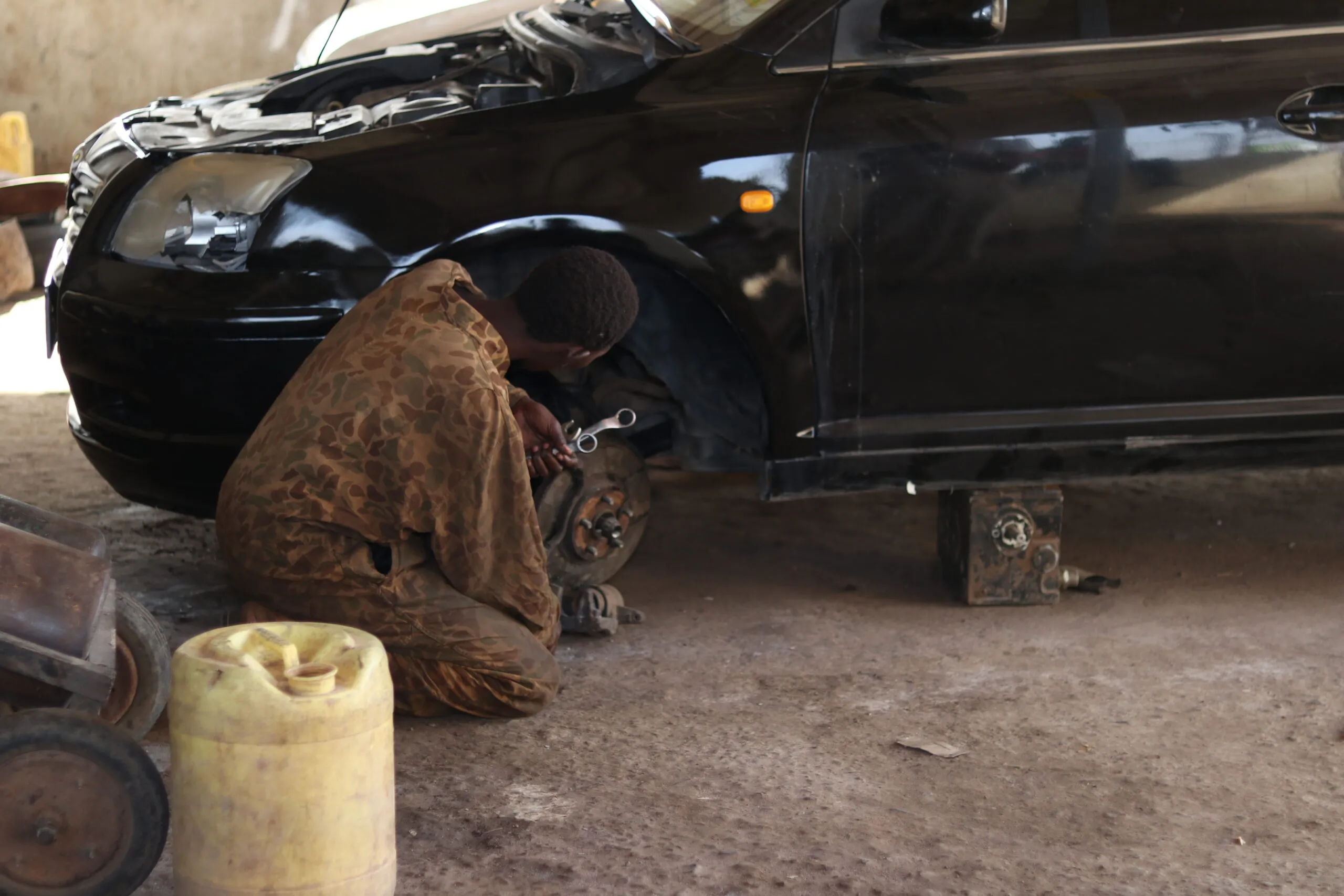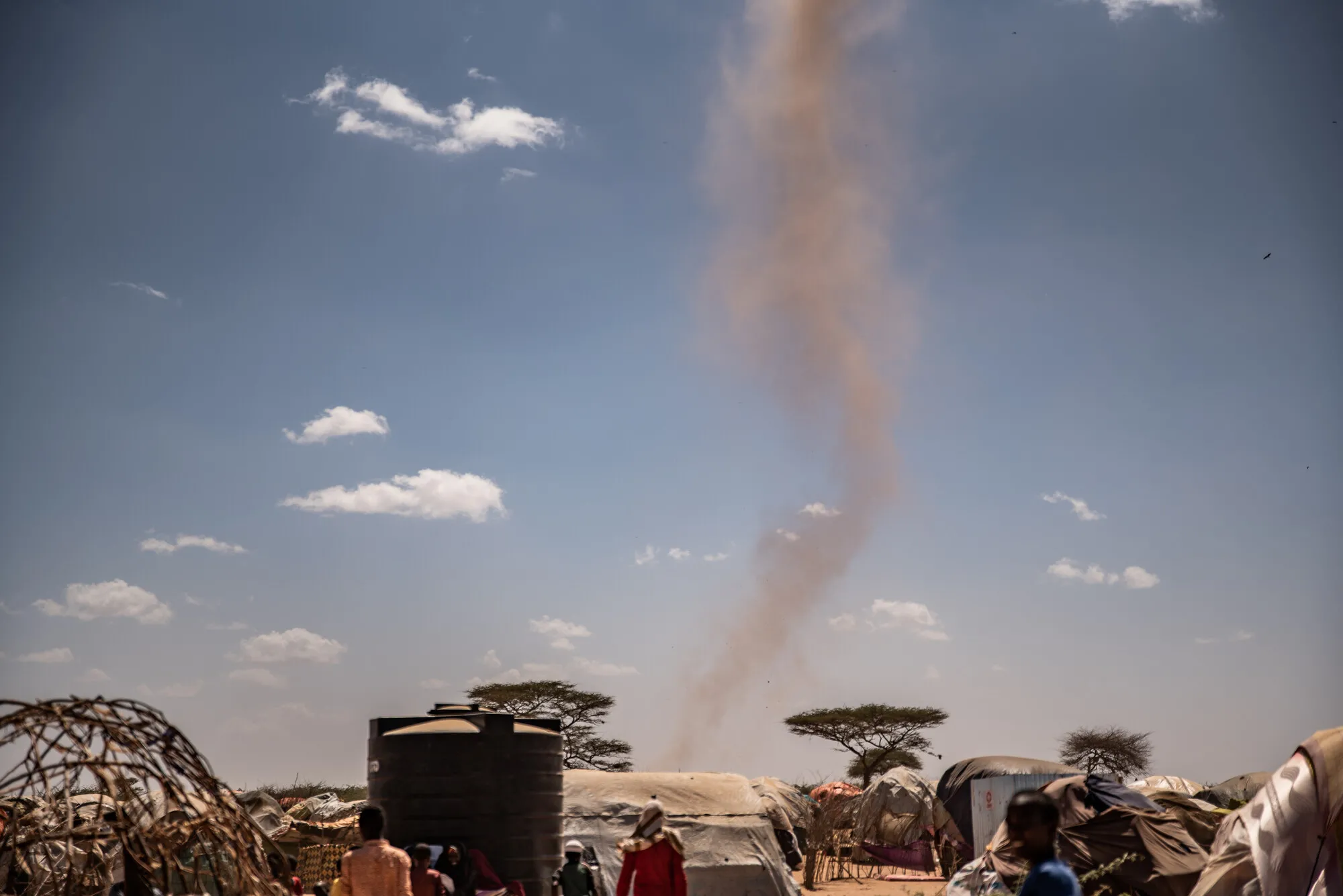At first glance, Jackiline Amina, clad in army print coveralls, blends in with her male counterparts. But while they do the same work — changing oil, replacing tires, and repairing car batteries — Jackiline is often singled out by customers.
“There is discrimination because sometimes when people bring their cars [for repairs], men say: You can’t do it. I say: I will. I’ll show you that a woman can do it,” Jackiline says.
For the last two years, she has been learning as much as possible about mechanics and ignoring the negative comments directed her way about her choice to do “men’s work.”
“When I began working with men, there was a lot of discouragement.”
“People said: You are a woman, you cannot manage. You are not strong and you are petite.”
Jackiline, 39, who is from Burundi, became a refugee at a young age when her family fled to Tanzania after her father was murdered. Jackiline spent her childhood there and had a family, but decades later, her life was at risk once again. Ethnic tensions in the region forced her to flee to Kenya, where she settled at the Kakuma Refugee Camp in 2013.
The camp and the nearby Kalobeyei refugee settlement, located in northwestern Kenya near the South Sudanese border, are home to 249,000 refugees and asylum-seekers.
With few opportunities, many refugees rely solely on aid distributed by the UN refugee agency UNHCR and humanitarian organizations. CARE, which has been working in Kenya since 1968, supports refugees in the Dadaab Refugee Camp near the southern border with food, water, hygiene, and education.
Some refugees in Kakuma work odd jobs such as washing people’s laundry and helping them fetch water from collection points, as Jackiline did when the father of her youngest child abandoned the family. But between these meager earnings and inadequate food rations, Jackiline says most families still struggle to make ends meet.
“I’ve found it’s a hard life, living in Kenya,” Jackiline said, sharing that she has participated in transactional sex in order to provide for her children.




